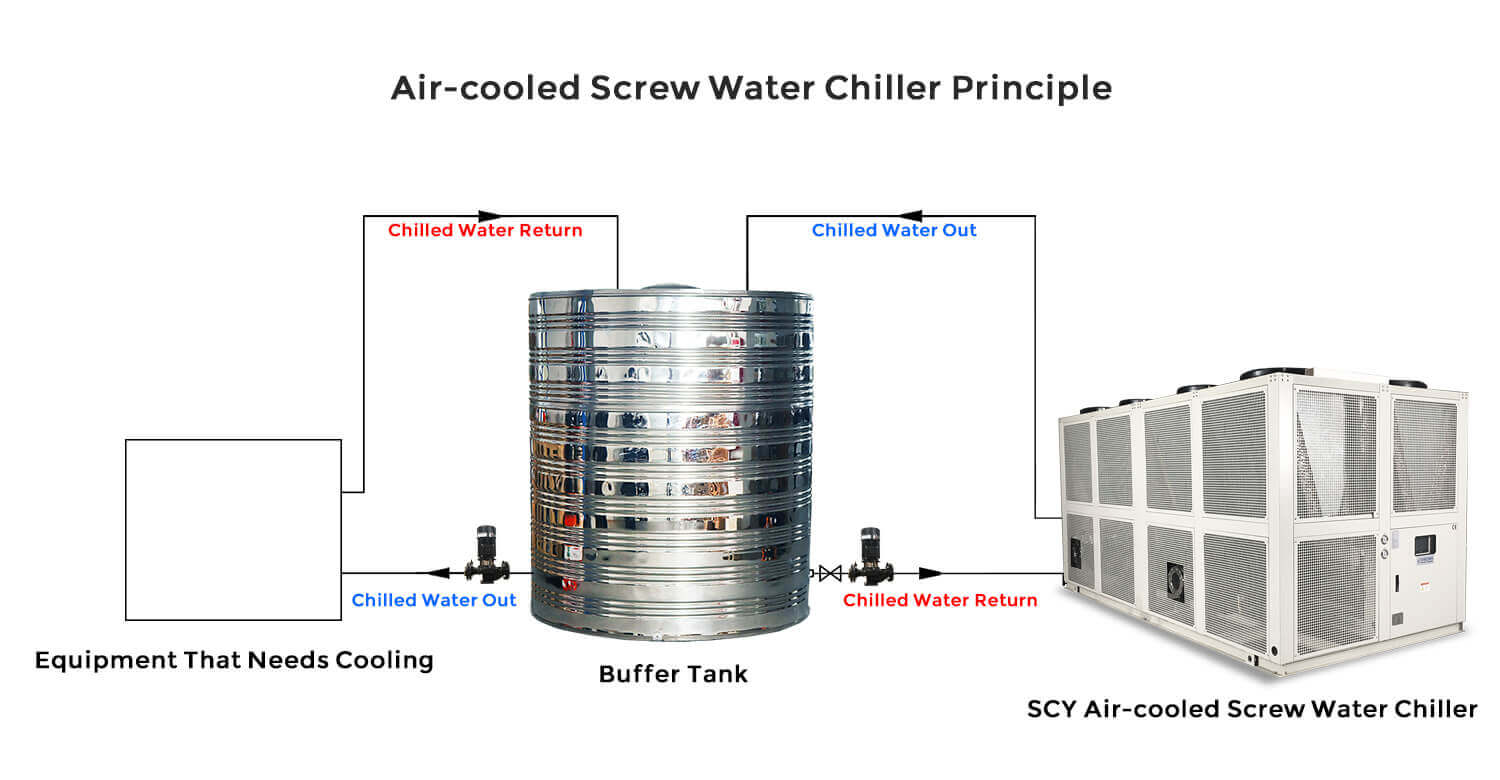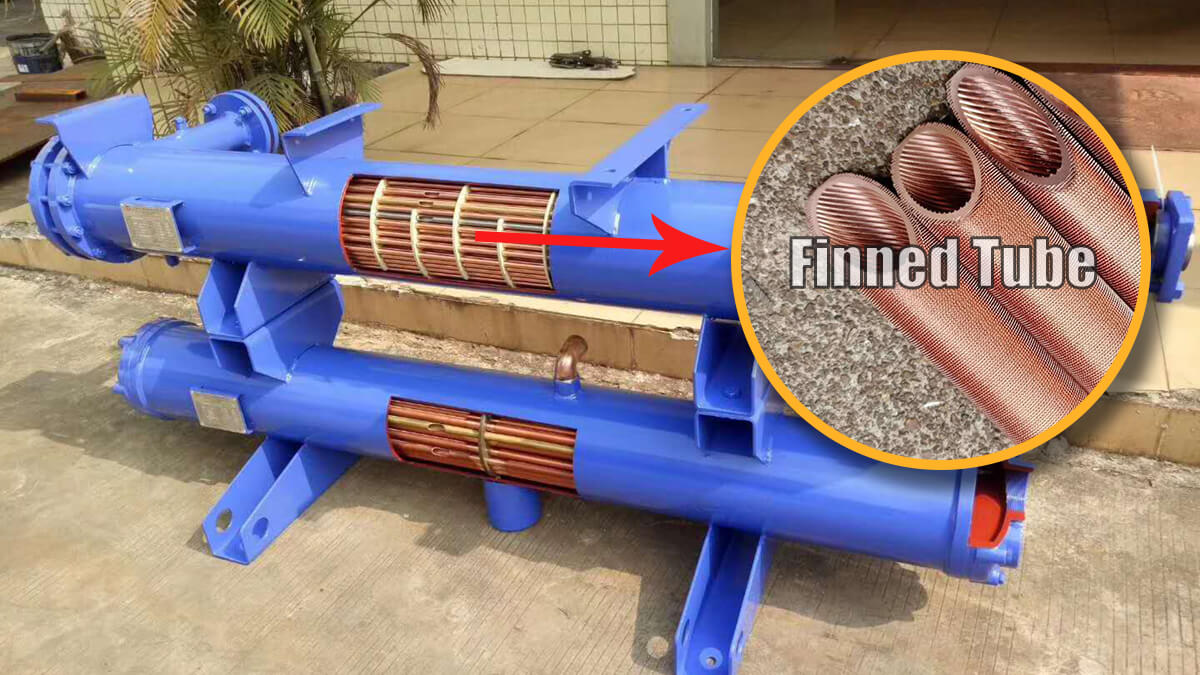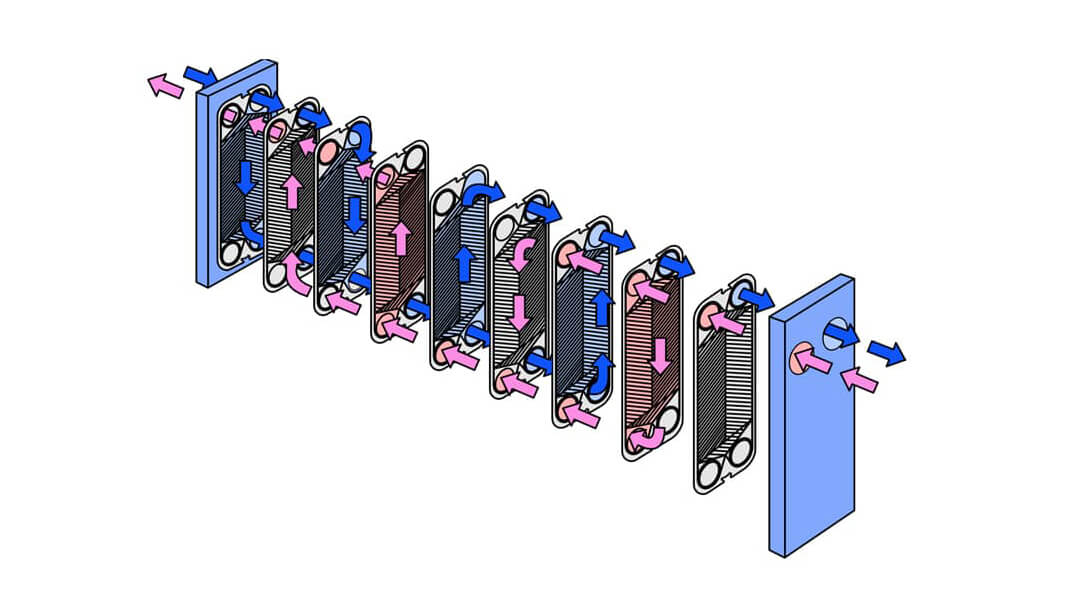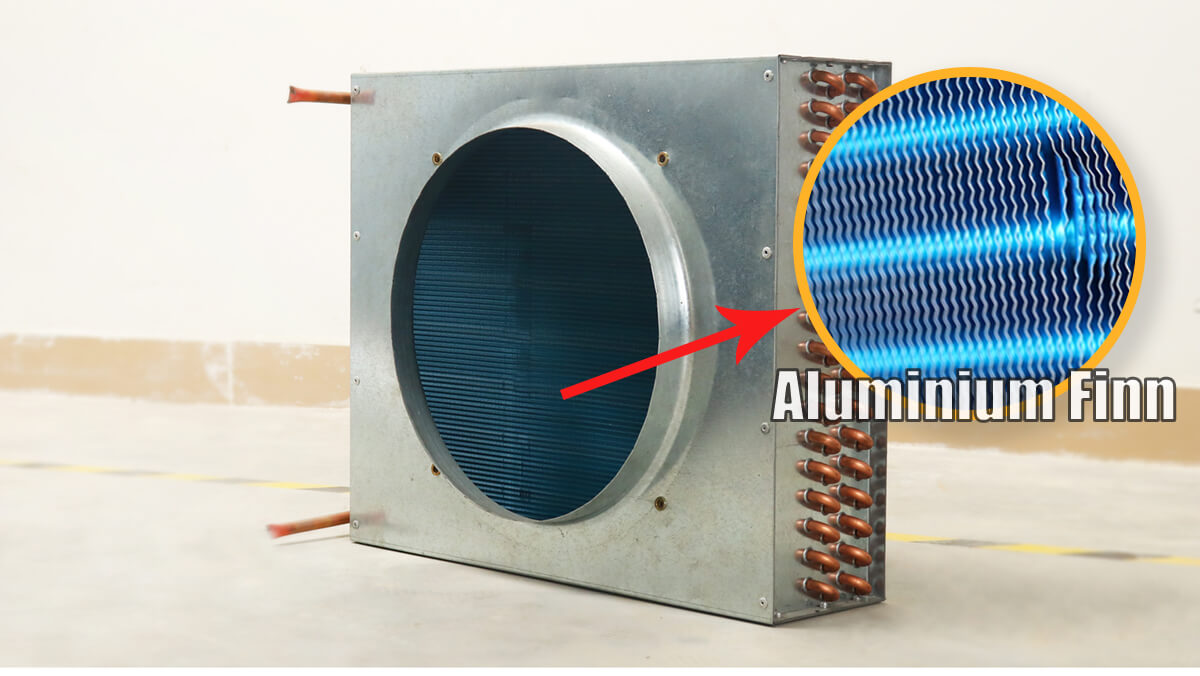Different cooling equipment can be used for reaching the best ambient or process temperature in commercial and industrial settings. The popular and readily available variants are chiller cooling systems (air-cooled chillers or water-cooled chillers) and heat exchangers. These systems are available with different designs, including heat exchangers and chiller cooling systems (water-cooled chillers and air-cooled chillers).
Although most heat regulation systems work using a chiller and heat exchanger combination, these cooling devices sometimes exist as stand-alone setups. In this article, we will discuss about heat exchanger vs. chiller in details.
Chiller vs. Heat Exchanger

The main difference that separates heat exchangers and chillers from each other is their design. Heat exchangers, as opposed to chiller systems, don’t have a refrigeration unit for cooling their circulating chiller fluid. Instead, they use direct fluid heat transfer to achieve the desired temperature regulation.
What is A Chiller?
Chiller, also called industrial chiller unit, chilled water plant or chilled water system, is a device that eliminates heat from a given process by circulating chilled water through it. The cooled water used in a chiller is generated by the refrigerant loop system inside.
There are two different cooling media (air or water) that absorb the heat when refrigerant changes from vapor to liquid. Therefore, chillers can use two different types, air-cooled and water-cooled.
How Does A Chiller Work?
Air-cooled chillers use a condenser that is similar to the “radiators” in a car. They use a fan to force air through the refrigerant coil. Unless they are specifically designed for high ambient conditions, air-cooled condensers need to operate effectively at an ambient temperature of 35°C (95°F) or less.

Water-cooled chillers function in the same way as air-cooled chillers, but require two steps to complete the transfer of heat. First, heat enters the condenser water from the refrigerant vapor. The warm condenser water is then pumped to the cooling tower, where the heat from the process is eventually vented to the atmosphere.

What is a Heat Exchanger And How Does It Work?
Put simply, a heat exchanger is a device which transfers heat from one medium to another. For example, a Hydraulic Oil Cooler will remove heat from hot oil by using cold water or air. Alternatively a Swimming Pool Heat Exchanger uses hot water from a boiler or solar heated water circuit to heat the pool water. Heat is transferred by conduction through the exchanger materials which separate the mediums being used. A shell and tube heat exchanger passes fluids through and over tubes, where as an air cooled heat exchanger passes cool air through a core of fins to cool a liquid.

What Types of Heat Exchanger Are Available?
There are many different types of heat exchanger available, the three main types that Thermex supplies are;
Shell and Tube Heat Exchangers consist of a large number of small tubes which are located within a cylindrical shell. The tubes are positioned into the cylinder using a tube bundle or “tube stack” which can either have fixed tube plates (permanently fixed to the body).

Plate Heat Exchangers operate in very much the same way as a shell and tube heat exchanger, using a series of stacked plates rather than tubes. Plate heat exchangers are usually brazed or gasketed depending on the application and fluids being used. Their compact stainless steel construction makes them an ideal choice for use with refrigerants or in food and beverage processing.

Air Cooled Heat Exchangers are commonly used in vehicles or other mobile applications where no permanent cool water source is available.

Contact SCY Chiller for Your Chiller Needs
For more than twenty years, SCY Chiller has been one of high-quality industrial chiller manufacturers in the industry. With our customer-centric approach to business, we remain dedicated to providing you with cooling options best suited to your unique industrial process chilling requirements.
